Many people think herbal supplements are safe because they’re natural. But that’s a dangerous assumption. If you’re taking blood thinners, antidepressants, or heart medication, mixing them with certain herbs can cause serious harm-sometimes even death. You might not realize you’re at risk because you never told your doctor you’re taking garlic pills for cholesterol or ginkgo for memory. And that’s exactly how problems start.
Why Herbal Supplements Can Be Dangerous with Prescription Drugs
Herbal supplements don’t go through the same safety testing as prescription drugs. The FDA doesn’t approve them before they hit store shelves. That means no one checks how they interact with your blood pressure pills, thyroid medicine, or chemotherapy. The result? Dangerous surprises.
These interactions happen in two main ways. First, herbs can change how your body breaks down drugs. Some herbs block or speed up liver enzymes that process medications. When that happens, your drug either builds up to toxic levels or gets flushed out too fast to work. Second, herbs can act like drugs themselves. Ginkgo thins your blood. St. John’s Wort boosts serotonin. When you add those to real medications, the effects pile up.
According to the Mayo Clinic, about 50% of U.S. adults take at least one supplement. For people over 65, that number jumps to nearly 70%. And here’s the kicker: only 25% of those people tell their doctor about it. That’s a massive blind spot in patient care.
High-Risk Herbal Supplements and Their Deadly Pairings
Not all herbs are equal when it comes to risk. Some are far more dangerous than others. Here are the top offenders-and the prescriptions they can turn deadly.
- St. John’s Wort: This herb is in nearly 90% of mood support supplements. It’s known to cut the effectiveness of cyclosporine (used after organ transplants) by 50-60%. That can lead to organ rejection. It also slashes levels of antidepressants like sertraline by 20-40%, birth control pills by 15-30%, and HIV drugs like saquinavir by up to 80%. In one case, a woman on birth control got pregnant after taking St. John’s Wort for three weeks. She didn’t know the two could interact.
- Ginkgo biloba: Found in 73% of brain health supplements, ginkgo increases bleeding risk when taken with warfarin, aspirin, or apixaban. Between 2010 and 2020, Mayo Clinic documented 23 major bleeding cases linked to this combo-including 3 deaths. One Reddit user, u/HeartPatient99, shared how his INR spiked to 8.2 after combining ginkgo with apixaban, leading to severe rectal bleeding. His doctors said this happens more often than people realize.
- Garlic supplements: Often taken for heart health, garlic reduces the blood levels of saquinavir (an HIV drug) by 51%. It also enhances the effect of blood thinners. A 2019 clinical trial showed garlic cut the AUC (a measure of drug exposure) of saquinavir by more than half. That means the drug stops working.
- Goldenseal: This herb blocks the CYP3A4 enzyme, which processes about half of all prescription drugs. In a 2018 study, goldenseal reduced midazolam clearance by 40%. That’s the same enzyme that breaks down statins, many cancer drugs, and immunosuppressants. Taking goldenseal with any of these can lead to overdose or toxicity.
- Coenzyme Q10: Often used for energy or heart health, CoQ10 can reduce warfarin’s effect by 25-30%. That means your blood doesn’t thin enough. One patient on warfarin for atrial fibrillation had a stroke after starting CoQ10. Her INR dropped from 2.8 to 1.4 in two weeks.
- Hawthorn: Used for high blood pressure and heart failure, hawthorn can drop blood pressure too far when taken with beta-blockers or ACE inhibitors. One case report described a man whose systolic pressure fell to 80 mmHg after combining hawthorn with metoprolol. He passed out and hit his head.
- Licorice: Found in teas and throat lozenges, licorice causes potassium loss. When taken with diuretics like furosemide, it can trigger dangerous heart rhythms. A 2021 case study described a woman who developed arrhythmia after taking licorice root daily for two months while on hydrochlorothiazide.
What About the “Safe” Herbs?
Some herbs are considered low-risk-but even those aren’t risk-free. Cranberry juice, for example, is often called safe with warfarin. But studies disagree. A 2020 JAMA meta-analysis of 12 studies found INR levels rose in some patients but not others. One study showed a 12% chance of dangerous INR spikes with just 250mL of cranberry juice daily. Another study found no effect at all.
Same with milk thistle and saw palmetto. They’re often labeled safe. But they’re not tested in people on multiple medications. What if you’re on statins? Or immunosuppressants? No one knows. The lack of data isn’t proof of safety-it’s just ignorance.
Even American ginseng, often thought to be gentle, may interact with blood pressure meds. A 2023 NCCIH summary noted some studies showed systolic pressure dropping 10-15 mmHg beyond the medication’s effect. That’s enough to cause dizziness or falls in older adults.
Who’s at the Highest Risk?
If you’re over 65, you’re at higher risk. That’s not just because you’re more likely to take supplements. It’s because your liver and kidneys process drugs slower. That means even small interactions can become big problems.
People taking five or more medications are also in danger. The more drugs you’re on, the more chances for a bad mix. A 2019 University of Michigan study found that 63% of supplement users had no idea herbs could interact with prescriptions. Most believed “natural = safe.” That belief killed one man in Ohio. He took ginkgo, aspirin, and warfarin together. He bled internally and died before reaching the hospital.
And let’s not forget the gap in medical care. Only 25% of patients tell their doctors about supplements. Why? Many think their doctor won’t care. Others are embarrassed. Some assume the doctor already knows. But doctors don’t ask unless you tell them. And if you don’t tell them, they can’t protect you.
What You Should Do Right Now
You don’t need to stop all supplements. But you do need to be smart.
- Make a list. Write down every supplement you take-name, dose, how often. Include teas, tinctures, and essential oils. If you’re not sure what’s in a product, take the bottle with you.
- Bring it to every appointment. Don’t wait for your doctor to ask. Say: “I’m taking these supplements. Can you check if they’re safe with my meds?”
- Use the NCCIH Herb-Drug Interaction Checker. It’s free. Type in your drug and supplement. It tells you the risk level: life-threatening, significant, or moderate.
- Watch for warning signs. If you start bleeding easily, feel dizzy, get confused, have a racing heart, or feel unusually tired after starting a new supplement, stop it and call your doctor.
- Ask your pharmacist. Pharmacists see your full med list. They’re trained to catch interactions. Don’t just pick up your pills-ask: “Is this safe with what I’m already taking?”

What the Medical Community Is Doing About It
Big institutions are finally waking up. The NCCIH updated its interaction database in January 2024, adding 12 new risky combos-including green tea reducing the effectiveness of bortezomib, a cancer drug. Epic Systems, the biggest electronic health record provider, plans to integrate this data into medication checks by Q3 2025. That means your doctor’s system might soon flag a dangerous mix before you even leave the office.
But regulation is still weak. The Dietary Supplement Health and Education Act (DSHEA) of 1994 lets companies sell supplements without proving safety. The FDA can only act after someone gets hurt. In 2022, the FDA warned 17 companies for secretly adding real drugs like sildenafil and statins into “natural” products. That’s not herbal medicine. That’s fraud.
The real problem? Evidence. Only 15% of documented herb-drug interactions are backed by solid clinical trials. The rest come from case reports or lab studies. That’s why doctors hesitate to give firm advice. But that doesn’t mean the risk isn’t real. It just means we’re flying blind in some cases.
Final Warning: Natural Doesn’t Mean Harmless
Herbal supplements aren’t candy. They’re powerful substances. St. John’s Wort isn’t just a “mild mood booster.” It’s a potent enzyme modulator that can make your transplant drug useless. Ginkgo isn’t just a memory aid. It’s a blood thinner that can turn a minor cut into a life-threatening bleed.
If you’re on a prescription drug, assume every supplement could interact with it-until proven otherwise. Don’t trust marketing. Don’t trust online forums. Don’t trust your friend’s aunt who took ginseng for 20 years and feels great. Your body is different. Your meds are different. Your risk is real.
Speak up. Get checked. Protect yourself. Because when it comes to herbs and prescriptions, silence can kill.

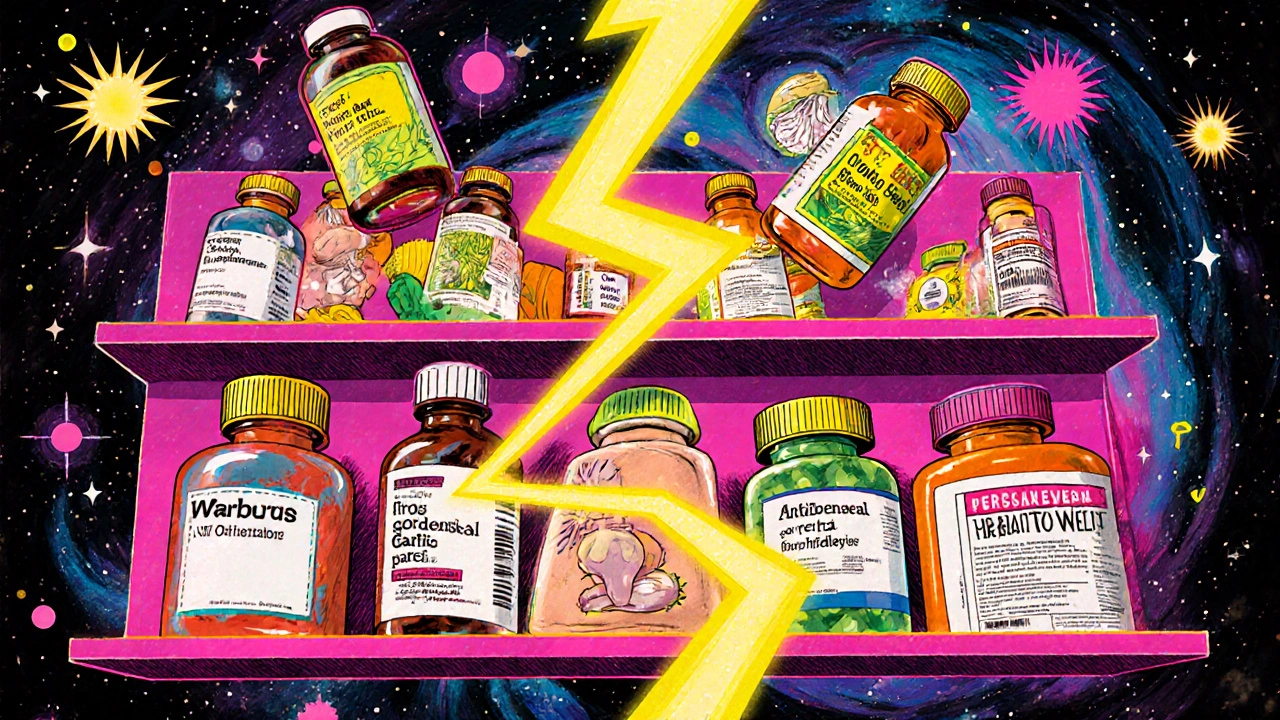
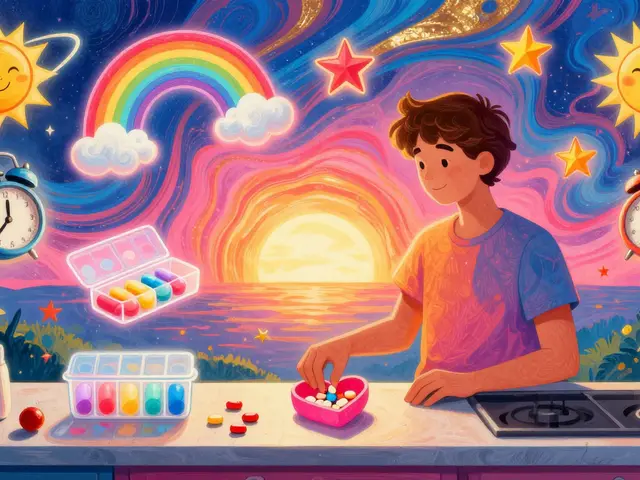
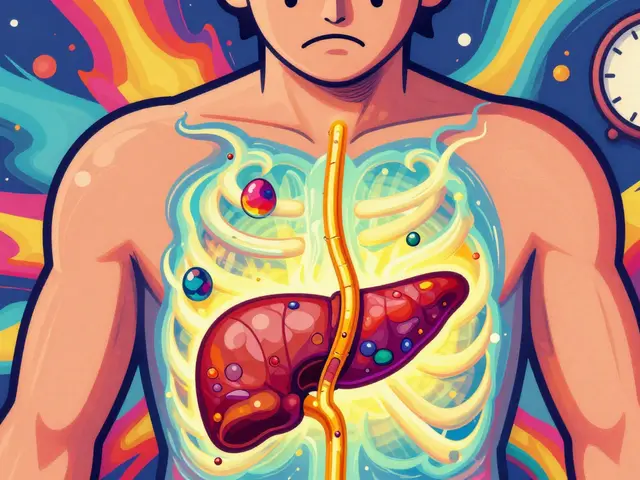
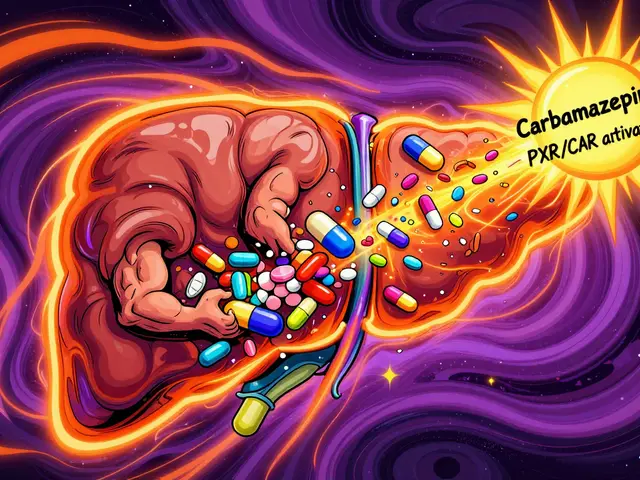
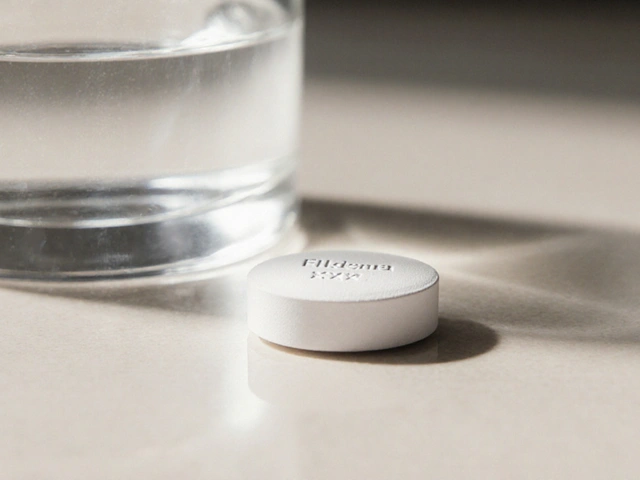
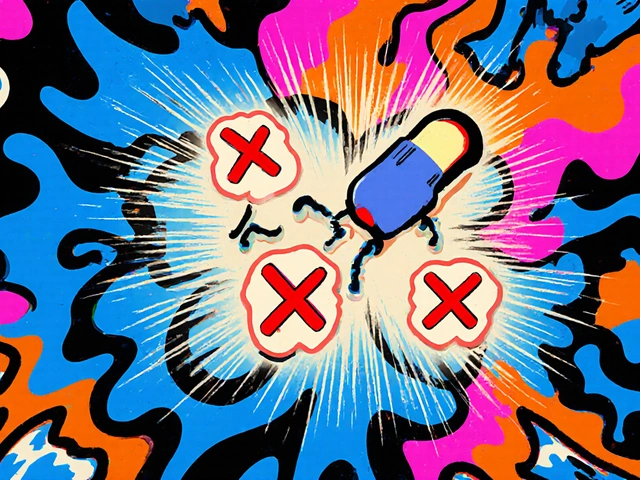
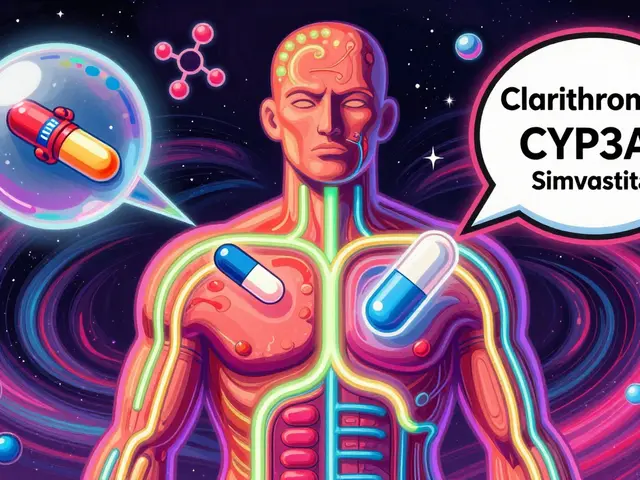
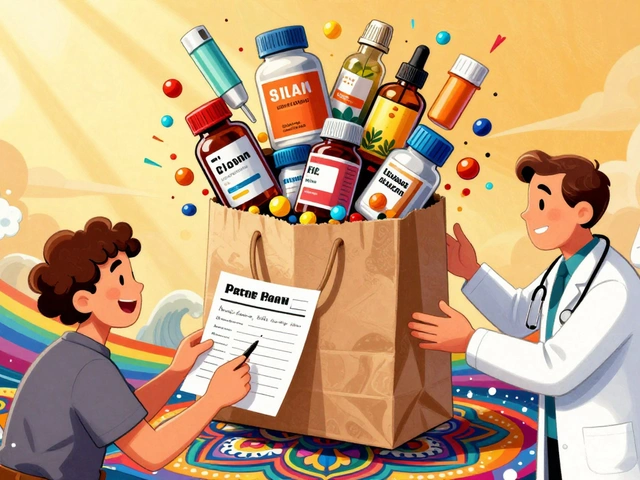
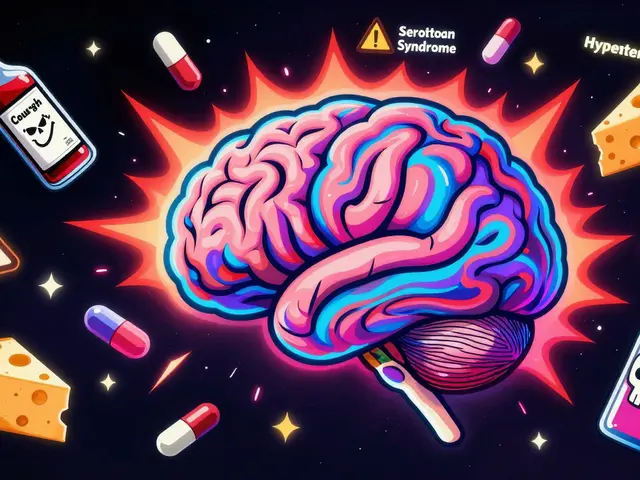
November 18, 2025 AT 21:10
Katelyn Sykes
So many people think if it’s plant-based it’s harmless but that’s like saying wild mushrooms are safe because they grow in the forest
November 20, 2025 AT 09:50
Gabe Solack
This is so important 🙏 I work in pharmacy and half the time patients don’t even realize garlic pills are a big deal with warfarin. We have to ask point blank. No one ever volunteers it. Also St. John’s Wort messing with birth control? Yeah that’s a real thing. Been there. Seen it. 😬
November 22, 2025 AT 06:59
Heidi R
The FDA doesn’t regulate supplements because they’re not drugs. That’s not negligence. That’s legal design. You want regulation? Pay for clinical trials. Otherwise stop pretending your tea is medicine.
November 23, 2025 AT 23:43
Holly Powell
Let’s be clear: the entire dietary supplement industry is a predatory pseudoscientific scam built on the cognitive dissonance of affluent Americans who believe they can outsmart pharmacology with a $20 bottle of powdered root. The fact that people still buy this nonsense speaks volumes about the collapse of scientific literacy in this country.
CoQ10 reducing warfarin efficacy? That’s not anecdotal. That’s pharmacokinetic reality. And yet, the market thrives on the delusion that ‘natural’ equals ‘gentle.’ It’s not. It’s bioactive. It’s potent. It’s unregulated. And people are dying because they think they’re being holistic instead of reckless.
The NCCIH database update is a Band-Aid. What we need is mandatory labeling of active phytochemical concentrations and interaction risk scores-like nutritional facts but for pharmacodynamics. Until then, this is just a graveyard of unmarked graves.
November 24, 2025 AT 07:38
Sarah Frey
I appreciate how thorough this is. I’ve been taking ginkgo for years thinking it was just a memory booster. I had no idea it could cause bleeding with my blood thinner. I’m going to stop it immediately and bring my supplement list to my next appointment. Thank you for the clear warning.
November 25, 2025 AT 04:08
Emanuel Jalba
THE GOVERNMENT IS LETTING BIG PHARMA KILL US WITH SUPPLEMENTS 🤯 THEY KNOW THIS IS HAPPENING AND THEY DO NOTHING!! I SAW A VIDEO OF A MAN BLEEDING OUT BECAUSE OF GINKGO AND NO ONE WOULD LISTEN!! 🚨💀 #SUPPLEMENTCRIME #FDAISACORRUPTORGANIZATION
November 25, 2025 AT 19:08
Brenda Kuter
They’re hiding this on purpose. I’ve read about how the supplement industry funds research to downplay interactions. They bribe doctors. They pay influencers to say ‘it’s just herbs.’ My cousin died from a stroke after taking CoQ10. They called it ‘natural causes.’ But it wasn’t. It was murder by marketing.
I’m not paranoid. I’m informed. And if you’re still taking supplements without checking? You’re playing Russian roulette with your liver.
November 26, 2025 AT 12:23
Shaun Barratt
It's worth noting that the CYP450 enzyme system is the primary pathway for over 75% of all pharmaceutical metabolism. Herbs like goldenseal and St. John’s Wort are potent modulators of these isoforms. The clinical implications are not speculative-they are empirically documented in peer-reviewed pharmacokinetic studies. This is not anecdotal. This is biochemistry.
Furthermore, the 25% disclosure rate among patients is a systemic failure of provider-patient communication. Physicians must be trained to ask specifically about supplements during intake-not assume patients know to disclose them. Standardization of supplement screening in EHRs, as mentioned with Epic, is a necessary and overdue step.
November 28, 2025 AT 02:54
Yash Nair
usa is so weak people take herbs like its yoga and cry when they bleed out. in india we know herbs are medicine. if you take ginkgo with blood thinner you deserve to die. no one here takes pills with tea. we use ayurveda right. no one is dumb enough to mix. you americans think everything is safe till it kills you. stupid.
November 29, 2025 AT 18:37
Kristina Williams
Did you know the government is putting fluoride in the water to make people forget about the real danger? The real danger is that Big Pharma owns the FDA and they want you to keep taking pills so they can sell you more pills. That’s why they let herbs be sold. So you think you’re being healthy but you’re being controlled. I’ve been researching this since 2018 and I know the truth. They’re scared of what happens if you stop taking their drugs.